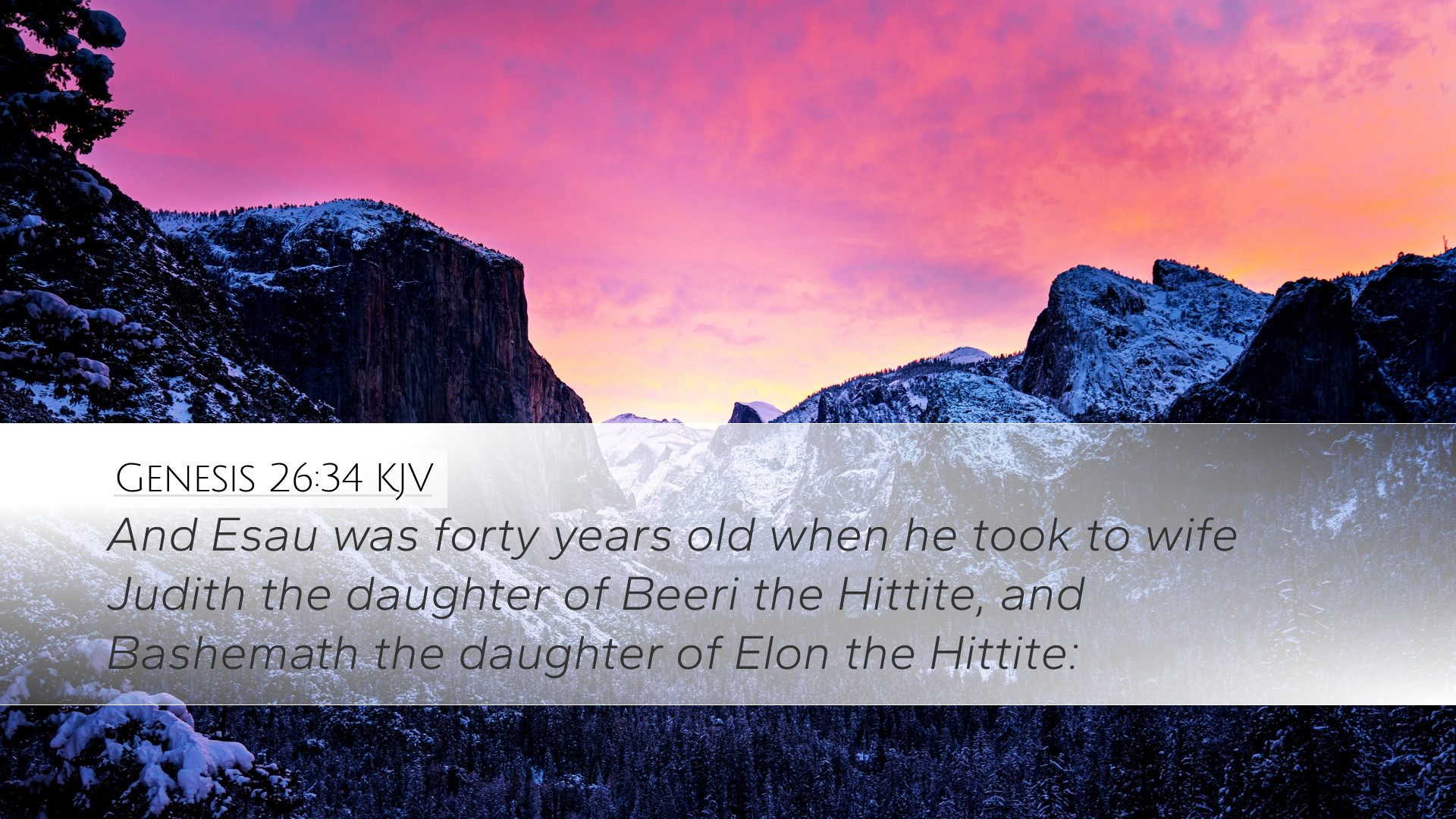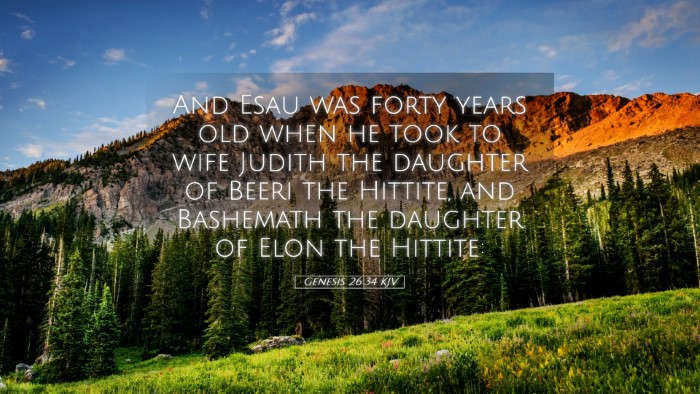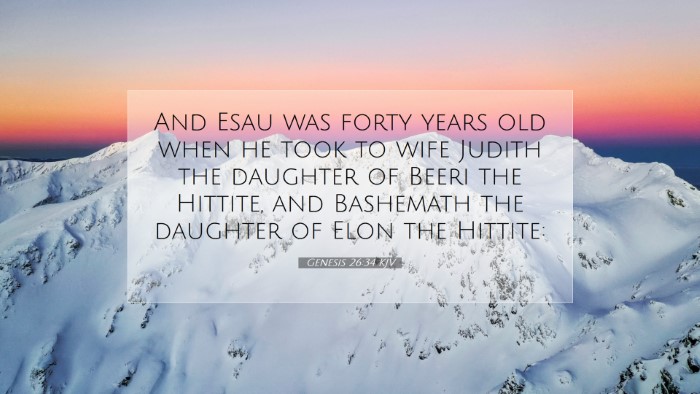Commentary on Genesis 26:34
Text of the Verse: "And when Esau was forty years old, he took to wife Judith the daughter of Beeri the Hittite, and Bashemath the daughter of Elon the Hittite."
Introduction
This verse occurs within the narrative of the life of Isaac and his sons, Esau and Jacob. It highlights Esau's marital choices and sets the stage for future events in the Biblical saga. The significance of Esau's marriages is manifold, touching on cultural, spiritual, and familial aspects.
Insights from Public Domain Commentaries
Matthew Henry's Commentary
Matthew Henry notes the importance of the age at which Esau married. At forty, Esau was of marrying age, but Henry emphasizes the implications of his choices. Esau's selection of Hittite women illustrates a departure from the covenantal lineage that Abraham sought for his descendants. Henry observes that these marriages were a direct violation of the expectations that Isaac and Rebekah had for their children, potentially leading to strife within the family and a breach of faith with God.
Albert Barnes' Notes on the Bible
Barnes elaborates on the names and backgrounds of the women Esau married. Judith and Bashemath, being daughters of Hittites, signify Esau's connection to a nation regarded as outside the covenant of God. He argues that these alliances reflected a rejection of the values passed down from Isaac and Abraham. He emphasizes that Esau’s actions indicate a disregard for the special path that God set out for his family and anticipates future consequences of his decisions, specifically the animosity they would foster within his lineage.
Adam Clarke's Commentary
Adam Clarke provides a more cultural and ethnographic perspective on the Hittites. He places Esau's choices within the broader context of ancient Near Eastern customs regarding marriage and alliances. Clarke suggests that Esau may have been motivated by a desire for social status or influence within the Canaanite community. However, he also emphasizes that the implications of marrying outside of his covenantal community were significant, suggesting that such unions weakened the religious and moral standards established by his family. Clarke, like others, underscores the tension between familial expectations and personal choices in Esau's life.
Theological Implications
The choices made by Esau raise profound theological questions regarding obedience, covenant, and the consequences of sin. The act of marrying Hittite women symbolizes a stark deviation from the covenant community and signifies the beginning of a long-standing conflict that will permeate the biblical narrative. Scholars have explored this theme extensively:
- Covenantal Integrity: The marriage practices of Esau disrupt the covenant established with Abraham and Isaac. God’s promises to Abraham revolved around the idea of remaining distinct from surrounding nations, emphasizing the theme of holiness.
- Loss of Birthright: Esau’s decisions foreshadow the eventual loss of his birthright and blessing. His marriages are emblematic of his disregard for spiritual priorities, leading to divine consequences.
- Family Dynamics: The choice to marry outside of the faith community inevitably introduces friction between Esau and Jacob, as Rebekah and Isaac’s disapproval would profoundly affect familial relationships.
Conclusion
Genesis 26:34 serves as a poignant reminder of the complexities involved in covenant life and the personal choices that can lead to spiritual and relational strife. Esau’s marriages are not merely personal decisions; they reflect a broader narrative about fidelity to God and the impacts of deviating from His intended path. For pastors, theologians, and scholars, this verse invites deeper examination of the themes of obedience, identity, and the consequences of choices made outside the covenant community. The insights gained here provide a rich tapestry for understanding the ongoing narrative of God’s relationship with His people.


